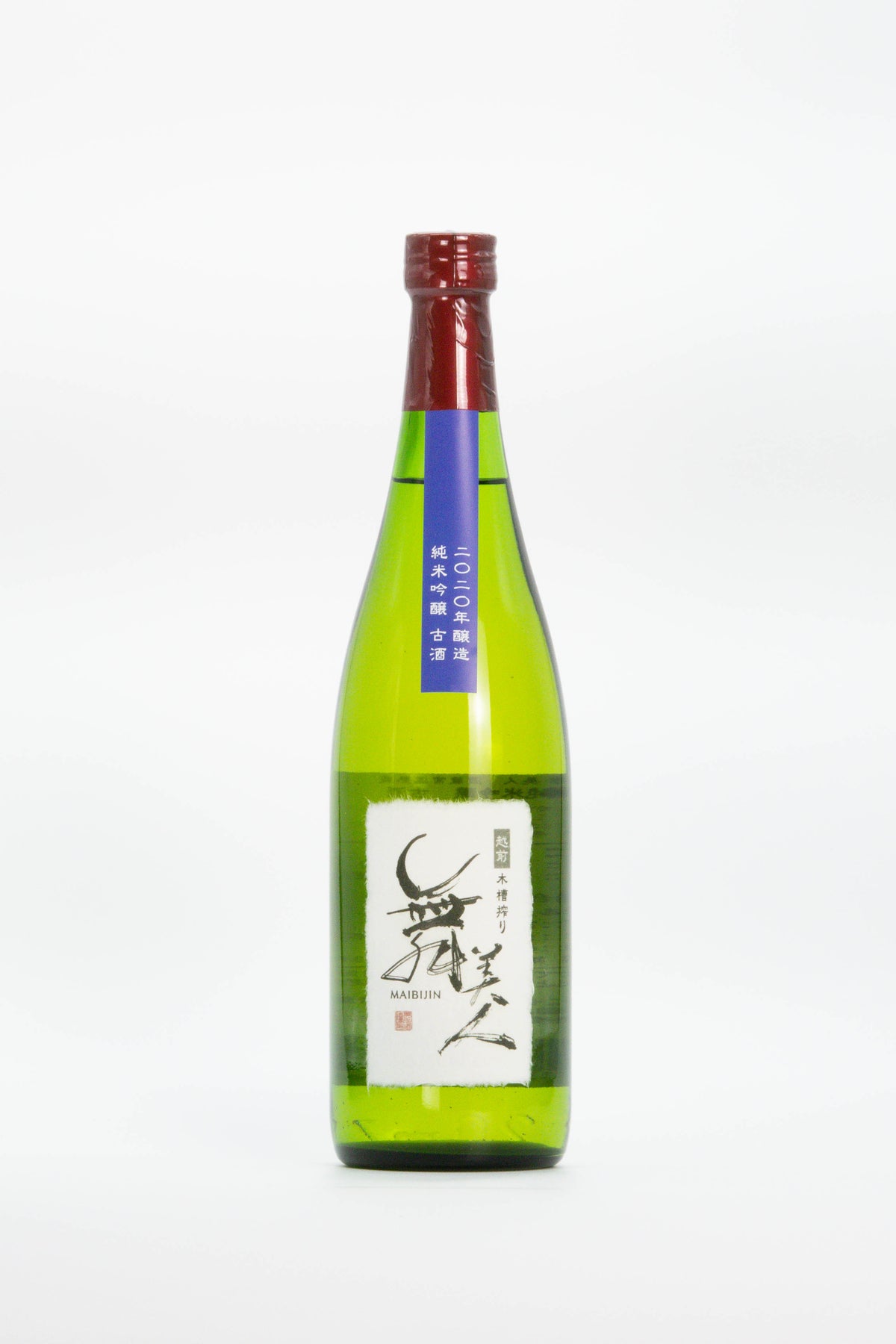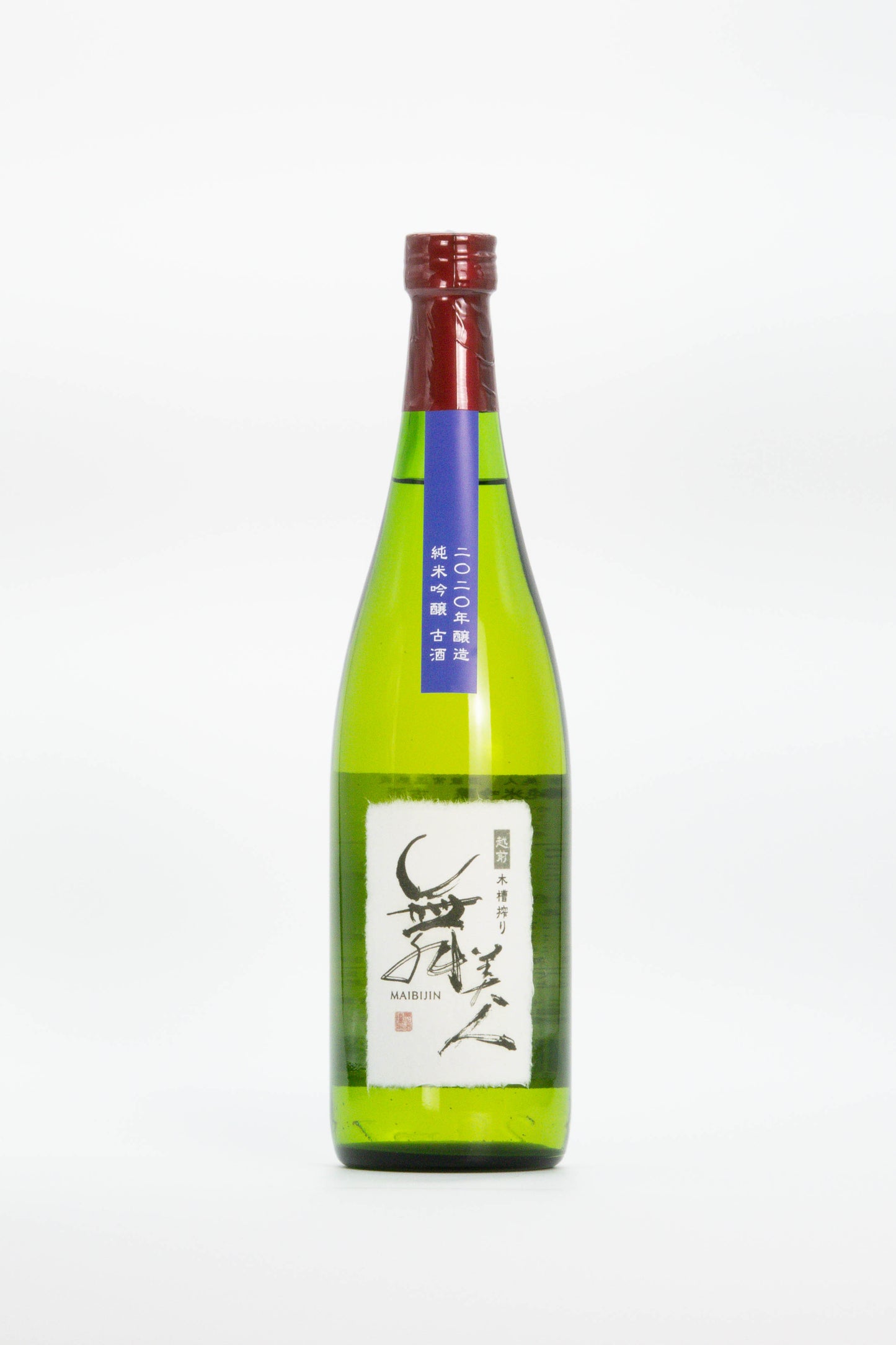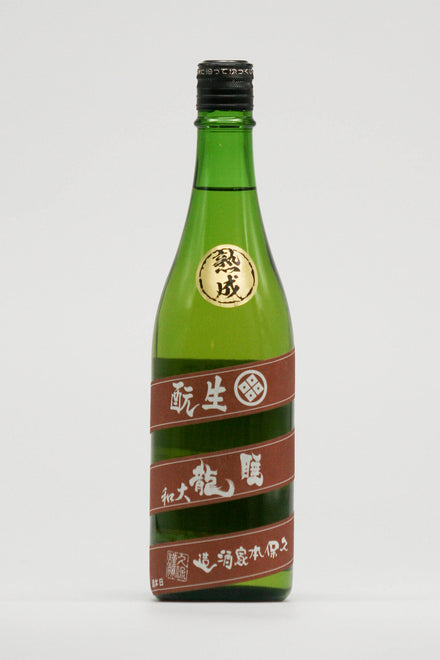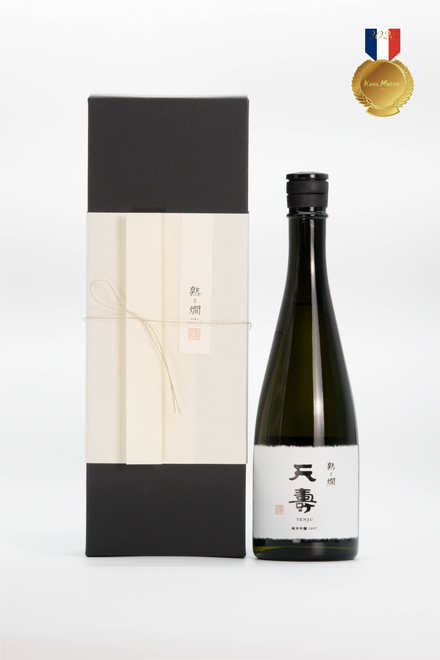
A unique personality. Behind the vinegar-like acidity, there is a umami flavor that, combined with the complex of various aromas, creates a lingering aftertaste.
Maibijin 2020 brewed Junmai Ginjo
| Vintage | 2020 |
| Years aged | 5 years |
- 2010 or later
- All Products
- Less than 5,000 yen
- Light Yellow/Green
- Throughout the meal
- 5-9 years
- Brewer:Mikawa Sake Brewery
- Alcohol:15 degrees - 16 degrees
- Volume:720ml
Couldn't load pickup availability
[ Drinking alcohol under the age of 20 is prohibited by law. ]
It is aged at room temperature for a long period of time in tanks in the brewery, where the temperature does not change much throughout the year, right after it is freshly pressed.
It is a delicious sake with a mild acidity and a dry but full flavor and umami.
It is a perfect complement to Western cuisine, meat dishes in general, and even oil-based dishes.
According to the brewer:
“We brewed this alcoholic beverage in response to a request from a local farmer to make alcoholic beverages from rice grown using the pyrrole farming method*. We recommend drinking it in a wine glass. “
*Pyrrole farming Pyrrole farming overcomes the problem of "oxygen deficiency" by growing photosynthetic cyanobacteria in the soil, and the cyanobacteria absorb carbon dioxide and produce oxygen in the soil. This is a farming method.
- about
-
Type Junmai Ginjo Rice polishing ratio 50% Yeast type FK801-C Ingredients/raw materials Rice/rice malt Rice type Specially cultivated rice Koshihikari Origin of rice Fukui prefecture Toji(Brew Master) Kinya Mikawa Assemblage 無
- Recommended occasions/temperature
-
- How to store
-
- Delivery dates and charges
-

Tasting comments
-
Hidekazu Ishiwata
(Former National Tax Bureau Chief Appraiser)(chilled)
Pale golden yellow visage.
Lactic acid, volatile acid, light and refreshing. Astringent. At first it has a Japanese-style aroma like pickles, but at other times it reminds me of orange wine, and the flavors change from one flavor to the next.
The taste has a bitter edge and hints of cocoa.
The difference in flavor is particularly noteworthy. One of a kind.
(warm)
With a scent of fermented pickles and burnt koji, it has a nostalgic feel, like being in an old library.
It has a complex flavor with strong hints of Western alcoholic beverages. The umami is more prominent at this temperature. The aroma is really interesting and diverse with notes of chocolate, bitter, orange wine, and sherry. -
Akiko Toda
(Director of ITTEKI, Japan Sake and Meat Research Institute)(chilled)
The scent is soothing and reminds me of my family's salted rice bran paste and barn.
It is silky with no unpleasant aftertaste. In the mouth, it's fairly neutral tasting.
Despite being an alcoholic drink, it gives the impression of something that is ""somehow good for the body"", ""like a detox drink."" The umami resonates for a long time. Pair it with fermented foods. Some people will be hooked by this.
(warm)
The scent is not very typical of sake. The tangy scent of plastic balloons changes over time to something like cherries. It also has a strong woody aroma, reminiscent of a pickle barrel stored in a barn. The taste is just like delicious aged Nozawana pickles, with a deep, savory acidity. It's fascinating to see the various expressions and aromas emerge one after the other. -
Yuji Yamauchi
(Yushima Tenjinshita Sushi Hatsu 4th generation / 1st JSA SAKE DIPLOMA competition winner)(chilled)
The first impression is pickled vegetables, banana chips, kansui, and kombu tsukudani. However, in the mouth, it has a barrel-like flavor reminiscent of Aligote and Chardonnay from Burgundy.
Unique personality, fullness and complexity.
The impact was so great that I almost lost my bearings for a moment.
(warm)
The way it develops as it warms from a balance reminiscent of oak barrels into a sake with an umami and depth is quite rare.
A first impression of pickled radish is veiled by the nuances of white wine and oak. It is a unique drink that stirs the imagination. -
Christopher Hughes
(WSET Sake Educator)(chilled)
Very youthful fruit nose with notes of white peach, grape and passion fruits. Grapefruit-like acidity is sharp but refreshing and creates a cleaner silhouette. Whisky notes on the finish. This koshu knows it's not like the rest but it doesn't care.
(warm)
Pronounced herbacious, spice aroma like kirsch, and umeshu. Cumquat, aniseed. Incredibly, smooth, silky rounded with an incredibly complex flavour profile. Super long finish with notes of liqourice.
Brewer


Mikawa Sake Brewery
Founded in 1887 (Meiji 20), it is currently managed by Kinya Mikawa, the 6th generation brewer. This year marks the 135th year. Koinezu-cho, Fukui City, where the sake brewery is located, is a rural area located in the southeastern part of Fukui City, with the Asuwa River in the east, the Fukui Prefectural Library in the north, the Hokuriku Expressway Fukui Interchange in the south, and easy access from JR Fukui Station. It is a scenic location, just 15 minutes by car, and has convenient transportation options.
Before the company was founded, the company was a landowner of a rice farm, so they began making sake using the harvested rice and abundant groundwater, a tradition that continues to this day. Even now, the sake brewing industry has its own rice fields, which is rare even in Japan, and while making plans with local contract farmers, they are planting sake rice varieties such as Yamada Nishiki and Gohyakumangoku, and are increasing the overall raw material rice production. Approximately 30% of our production comes from our own rice fields, and we hope to establish the terroir of our sake in the future.



